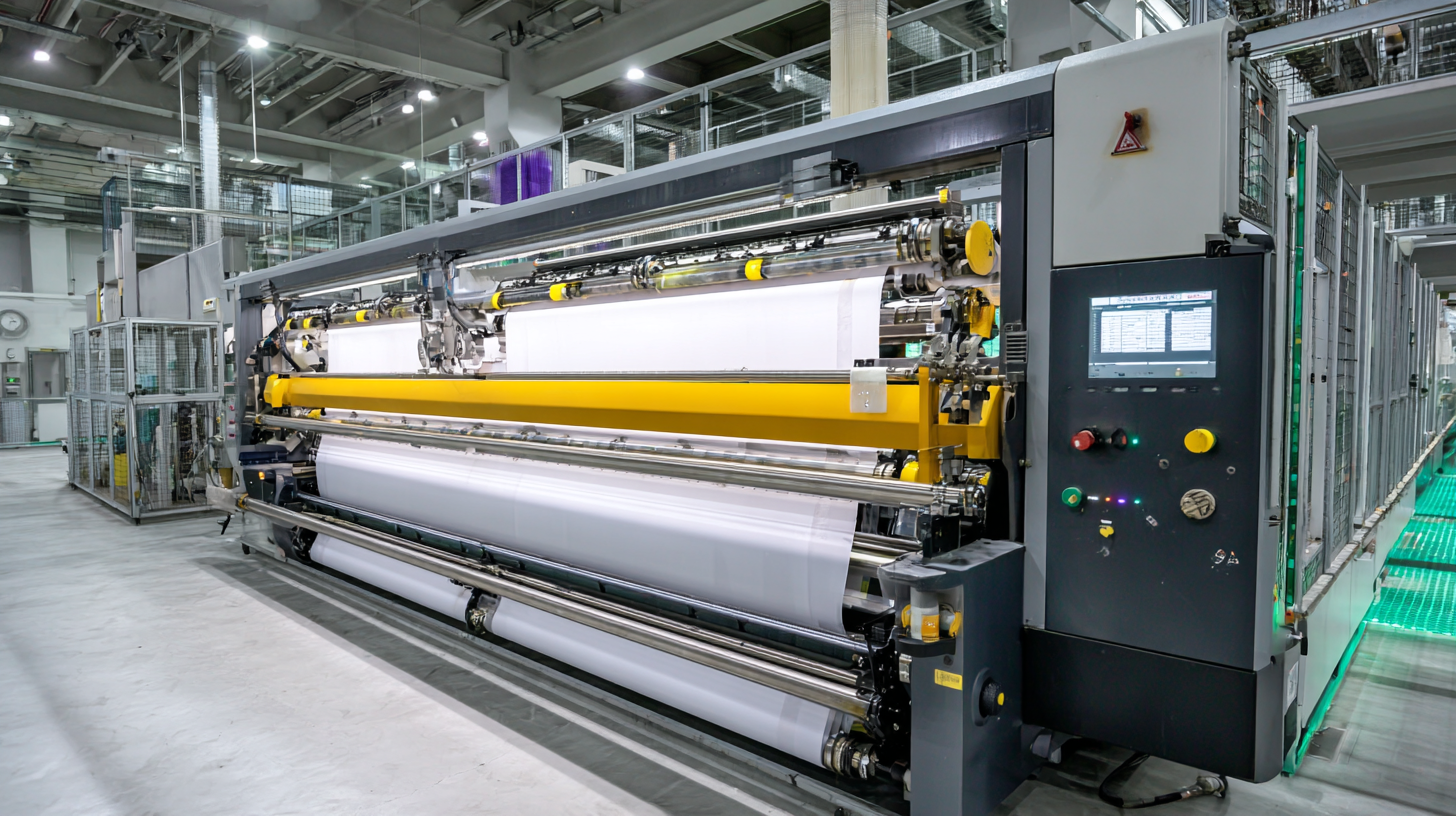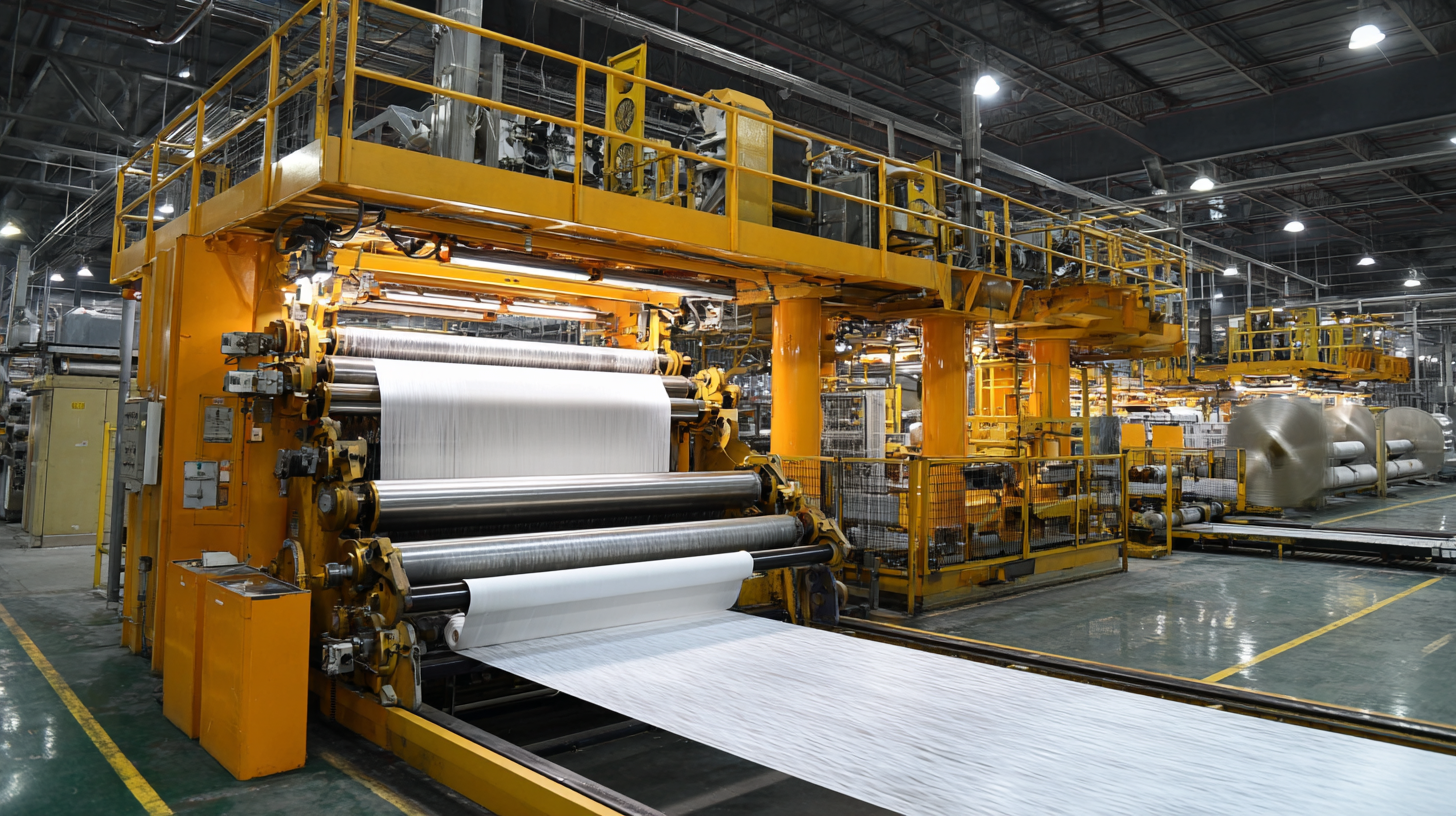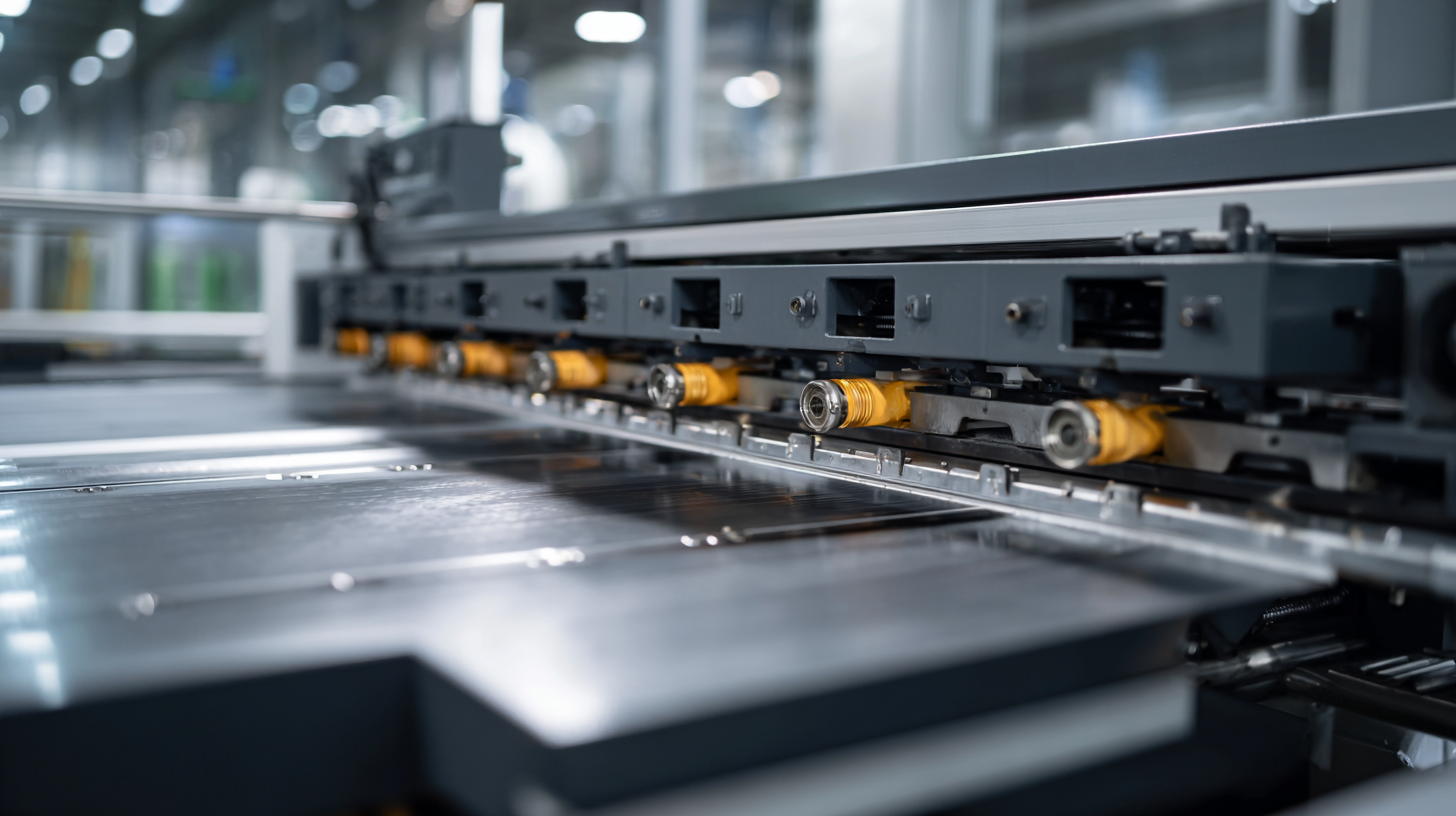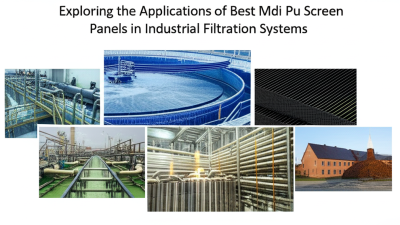 No. 14, Building 2, No. 367 Beijing Road, Chengdu Economic and Technological Development Zone (Longquanyi District)
No. 14, Building 2, No. 367 Beijing Road, Chengdu Economic and Technological Development Zone (Longquanyi District)

When it comes to optimizing industrial processes, selecting the appropriate Mdi Pu Screen Panel is crucial for ensuring efficiency and productivity. With a wide variety of screen panels available on the market, each designed to cater to specific requirements and applications, making the right choice can be daunting. This blog aims to guide you through the key considerations in selecting the ideal Mdi Pu Screen Panel for your specific industrial needs. From understanding the material properties and mesh configurations to evaluating the compatibility with your existing equipment, this comprehensive guide will equip you with the knowledge necessary to make an informed decision. Whether you are in mining, recycling, or any other industry that requires robust and reliable screening solutions, choosing the right Mdi Pu Screen Panel can significantly impact your operation’s performance and results.

When selecting the right MDI PU screen panel for industrial applications, it is crucial to understand their fundamental characteristics. MDI (Methylene Diphenyl Diisocyanate) is a key component in the production of polyurethanes, which are utilized widely in various sectors due to their durability and resistance to harsh conditions. The increasing demand for MDI PU screen panels can be attributed to their exceptional performance in filtration processes and their ability to withstand extreme temperatures and chemical exposure, making them ideal for industries such as mining, oil and gas, and wastewater treatment.
Recent developments in the MDI production sector further highlight the significance of choosing the right materials. One leading manufacturer is currently expanding its MDI production capacity from 800,000 tons to 1,500,000 tons per year, driven by a remarkable production-sales rate of 97.4% in the first three quarters. This enhancement not only showcases the growing market demand but also emphasizes the importance of sourcing quality MDI PU screen panels that are engineered to meet rigorous industry standards. Stakeholders must ensure they select products that provide reliability and efficiency to keep pace with the evolving industrial environment.
| Dimension | Material Type | Recommended Usage | Durability Rating | Temperature Resistance |
|---|---|---|---|---|
| 1200 x 2400 mm | MDI PU | Heavy Machinery | High | -30°C to 80°C |
| 1500 x 3000 mm | MDI PU | Construction | Medium | -20°C to 75°C |
| 1000 x 2000 mm | MDI PU | Food Processing | Very High | 0°C to 60°C |
| 1800 x 3600 mm | MDI PU | Mining | High | -40°C to 90°C |
Choosing the right MDI PU screen panel for your industrial applications can greatly enhance productivity and efficiency. One of the key factors to consider is the material composition of the panel. MDI provides excellent durability and resistance to chemical exposure, making it suitable for harsh environments. Ensure that the specific MDI PU formulation aligns with your operational needs, such as temperature tolerance and impact resistance.
Another important factor is the panel size and configuration. It’s crucial to evaluate the dimensions and layout of your machinery to select panels that fit seamlessly and optimize performance. Additionally, consider the screen design that best suits your application, whether it’s for filtration, screening, or separation. Customizable options may be available, allowing you to tailor the panel to specific operational requirements.
Tips: When assessing potential suppliers, inquire about the certifications and testing standards that their panels meet, as this can be an indicator of quality. Furthermore, always request samples to evaluate the physical properties of the panels before making a bulk purchase. This hands-on approach will help ensure that you select MDI PU screen panels that align perfectly with your industrial needs.

When selecting the right MDI PU screen panel for industrial applications, understanding the different materials available is crucial. MDI (Methylene Diphenyl Diisocyanate) is known for its superior durability and resistance to harsh chemicals, making it a preferred choice for demanding environments. Different formulations can offer variations in flexibility and tensile strength, catering to specific operational needs. By comparing various MDI PU screen panel materials, companies can ensure they choose the option that balances performance and cost-effectiveness for their particular applications.
Furthermore, the ongoing shifts in the global economic landscape, particularly with recent events surrounding U.S. policies, underline the need for industries to remain agile. For instance, with the recent surge in U.S. stock markets reflecting investor confidence, industries relying on imports from China might need to prepare for potential shifts in material availability and costs. As companies navigate this volatile market, opting for MDI PU screen panels tailored for resilience and efficiency will be vital in maintaining productivity and staying competitive, regardless of external economic pressures.
When selecting an MDI PU screen panel for industrial applications, evaluating its durability and performance is paramount. According to a recent report by MarketsandMarkets, the global polyurethane (PU) market is expected to reach USD 72.3 billion by 2025, indicating a rising demand for high-performance materials across various sectors.
MDI (Methylene Diphenyl Diisocyanate) based PU offers superior chemical resistance, making it suitable for environments exposed to harsh chemicals and extreme conditions. Enhanced durability directly impacts the lifecycle and maintenance costs of machinery, thereby improving operational efficiency.
Performance metrics, including tensile strength and impact resistance, must also be taken into account. A study published by the Journal of Polymer Science indicates that MDI PU materials exhibit up to 30% greater tensile strength compared to conventional alternatives, resulting in increased longevity and reliability in demanding applications. Additionally, MDI-based compositions provide excellent flexibility and resilience, allowing them to withstand dynamic loading without significant deformation. This adaptability is essential for industries that rely on heavy machinery, where equipment failure can lead to costly downtimes. Therefore, prioritizing these factors ensures that businesses invest in screen panels that not only meet but exceed their operational expectations.
 Maintaining and caring for your MDI PU screen panels are crucial steps that can significantly extend their lifespan and enhance their performance. First, regular cleaning is essential to prevent the accumulation of debris and contaminants that can obstruct the screen's functionality. Use a soft brush or a gentle air blower to remove dust and particles. For deeper cleaning, a mild detergent mixed with water can be applied, followed by thorough rinsing to avoid any residue build-up that could impair the panel's efficiency.
Maintaining and caring for your MDI PU screen panels are crucial steps that can significantly extend their lifespan and enhance their performance. First, regular cleaning is essential to prevent the accumulation of debris and contaminants that can obstruct the screen's functionality. Use a soft brush or a gentle air blower to remove dust and particles. For deeper cleaning, a mild detergent mixed with water can be applied, followed by thorough rinsing to avoid any residue build-up that could impair the panel's efficiency.
In addition to regular cleaning, it's important to inspect the panels for any signs of wear or damage. Early detection of issues like cracks or delamination can prevent more extensive damage and costly repairs later. Ensure that panels are stored properly when not in use, ideally in a cool, dry place away from direct sunlight. Implementing these best practices not only maintains the integrity of your MDI PU screen panels but also optimizes their performance, ultimately supporting your industrial applications more effectively.





